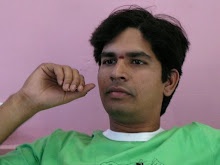King usually refers to someone with ultimate powers in a State. Within his territory, nothing is impossible for the king and everyone in the kingdom must obey him. As we know, with great power comes great responsibility and the state of affairs in a kingdom depends solely on its King.
Though kings are now non-existent in India, our political leaders, who are generally inaccessible to general public during non-election times, can be called Kings, albeit with some adjectives added. I believe they can be safely addressed as lethargic and ineffective Kings, who, despite being vested with innumerable powers by the Constitution, cut a sorry figure every time a mishap occurs.
Accepted that there a few issues that require intense debate and deliberation before arriving at a conclusion, but how much time will it take for the State governments or the Central government to enact stringent laws to tackle burning issues like terrorism, atrocities against women, etc. Of course, laws alone do not bring down the crime rate but they can be deterrents.
It is sad that a person who attacks with acid is sentenced to a few years of imprisonment and is imposed a nominal fine. The insane animal robs someone of her rosy life but is booked for attempt to murder and is awarded a nominal punishment. In the case of Manohar, the killer of Srilaxmi, a lower court ordered that he be sent to the gallows but the Andhra Pradesh High Court commuted it to life imprisonment in order to give him a chance to reform. Shouldn't he be hanged to send jitters down the spine of all criminal minds? In fact, human rights activists were howling against the death sentence. Huh! we need to get rid of these dented minds first.
Similarly a captured terrorist is fed relentlessly in jail. Shouldn't he be killed once found guilty? Why the delay and why the fail? Just because their (the rulers') near and dear are not directly affected.
The National Investigating Agency Bill, 2008 and the Unlawful Activities (Prevention) Amendment Bill, 2008 that were passed today are just reactive measures. POTA was scrapped only because it was introduced by the BJP-led NDA and to garner Muslim votes during 2004 elections. The end-result, crippled intelligence network and handicapped anti-terrorism units leading to umpteen number of blasts across the country. Instead of apologizing for the terror strikes, Union science and technology minister Kapil Sibal shamelessly said that Congress had learnt lessons from its past experience in fighting terrorism. In his words, "In life, as in politics, nothing is static.... ideologies change. We all learn from experience,"
If only our politicians had wished for a stricter anti-terrorism law just after the 1993 blasts and a stringent punishment just after the first acid attack, the situation would have been different today. Once bitten twice not shy!
There are more such issues which need immediate attention. But let us wait for something worse to happen just to gain some more experience.
Chatter Box
A bit of everything
Bienvenido!
Enjoy reading.
Please feed my Comments Section and also the fish in the container below.


Post a Comment